Featured Article
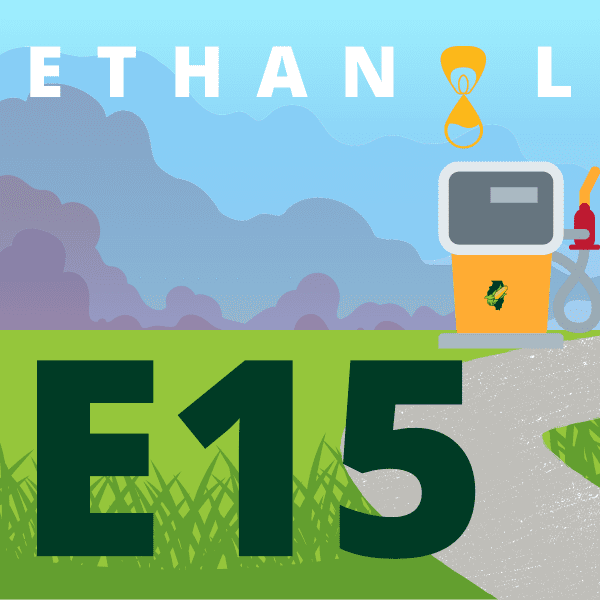
By Irshad MD
•
September 27, 2024
The IL Corn Growers Association (IL Corn) & National Corn Growers Association applauds a bipartisan group of U.S. House members for introducing the “ Consumer and Fuel Retailer Choice Act ,” which would grant consumers year-round access to higher ethanol blends. “This legislation is critical in removing unnecessary restrictions on ethanol sales, particularly during the summer months. It’s a win for both consumers and farmers, helping reduce greenhouse gas emissions, lower fuel prices, and provide a stable market for Illinois corn growers,” said Illinois farmer and IL Corn Growers Association President Dave Rylander. The introduction of this legislation is particularly significant for Illinois, where nearly one-third of the corn grown is used for ethanol production. This creates a vital market for Illinois corn farmers, supporting rural economies across the state. Ensuring year-round access to E15 would strengthen this market and provide stability for growers, making it easier for them to continue investing in sustainable practices and innovation in the ethanol industry. By expanding access to ethanol blends, the legislation would also promote energy independence and environmental benefits for the entire region. The bill lead sponsors are Reps. Adrian Smith (R-Neb.), Angie Craig (D-Minn.), Sharice Davids (D-Kan.), Dusty Johnson (R-S.D.), Nikki Budzinski (D-IL.), and Mariannette Miller-Meeks (R-Iowa), seeks to address the limitations on selling 15% ethanol blends, commonly referred to as E15, during the summer months under current federal policy. Also co-sponsoring the bill are Reps. Mike Bost (R-IL), Robin Kelly (D-IL), Darin LaHood (R-IL), Mary Miller (R-IL) and Eric Sorenson (D-IL). While the Clean Air Act gives the EPA authority to issue temporary waivers in cases of fuel shortages, this policy has created uncertainty for corn growers and contributed to higher fuel prices for consumers, particularly during the summer driving season. Although the Biden administration has issued temporary waivers in recent years, farmers and Midwest governors have long been advocating for a permanent solution. This bill would provide that answer. Similar legislation, championed by Senators Deb Fischer (R-Neb.), Tammy Duckworth (D-Ill.), Shelley Moore Capito (R-W.Va.), and Tammy Baldwin (D-Wis.), has been introduced in the Senate. Corn growers have voiced strong support for both versions of the bill. "Our champions in both chambers of Congress have sponsored and co-sponsored sound and sensible legislation that will remove a major market barrier, for us” said Minnesota corn grower and NCGA President Harold Wolle. “Now we call on their colleagues and the president to do what it takes to ensure this legislation becomes law.”

September 25, 2024
Low water levels on the river system and a disruption in rail deliveries to Mexico are costing Illinois farmers this fall. Illinois corn farmers export more corn out of the state than any other state in the union. When unforeseeable circumstances impact the export of corn, Illinois corn farmers pay the price. As a five-year average, 49 percent of the corn grown in Illinois leaves the state destined for other markets. Most of that corn finds itself in another country to become livestock feed or ethanol. The vast majority of corn crosses the Illinois border on a barge or a rail car; Illinois farmers rely on their expansive river and rail transportation network to power international sales.
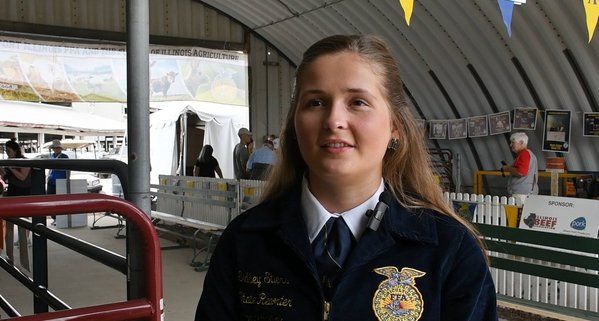
September 24, 2024
For Sidney Stiers, Illinois FFA State Reporter, representing her organization in the nation’s capital was more than just a trip—it was an experience that left a lasting impact. In a recent visit to Washington, D.C., Sidney and several section presidents got the chance to witness the history and importance of the city firsthand. For some, it was their first time seeing the monuments and landmarks that they had only viewed in pictures before. Sidney recalls how quickly legislators and staff recognized the iconic FFA emblem on their jackets, a symbol of the organization's value and influence. This recognition reminded Sidney just how important FFA is in shaping future agricultural leaders.
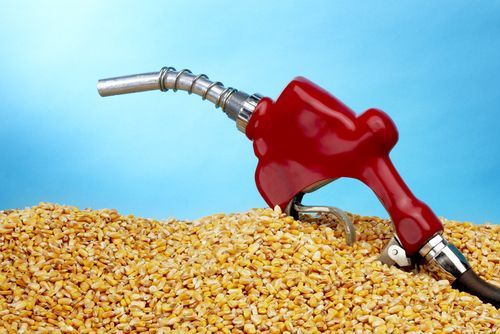
September 23, 2024
On Friday, September 20, the U.S. House of Representatives passed a resolution overturning EPA’s tailpipe emissions standard . The standard calls for an average emissions reduction of 52 percent via the manufacturing of electric vehicles. Electric vehicles will now make up two-thirds of all vehicles sold by 2032. Such a significant decrease of liquid fuel vehicles on the road will result in a significant decrease in domestic ethanol demand, costing family farmers around one billion bushels of corn demand destruction. Such a change could throw rural economies into a tailspin, according to a study by the University of Nebraska-Lincoln . IL Corn Growers Association (ICGA) remains vehemently opposed to this draconian standard. “Corn farmers in Illinois applaud the House vote on a resolution that would overturn what ICGA calls the EPA’s de facto electric vehicle mandate. The emissions standards the EPA released in May focused only on electric vehicles as a pathway to decarbonize the U.S. transportation sector and did not consider other alternatives, like clean-burning corn-based ethanol,” says Dave Rylander, President of ICGA and farmer from Victoria, IL. “The ethanol produced from my corn here in Illinois has a greenhouse emissions reduction of 45-50 percent below conventional petroleum fuels and it’s available to consumers now without having to overhaul our infrastructure and force Americans to buy vehicles they aren’t yet ready to buy,” he concluded. ICGA is currently partnering with other organizations in litigation in federal court against the rule . While corn farmers remain grateful for the House’s action to overturn the rule, another immediate course of action would be to consider the Next Generation Fuels Act . The bill creates a new low GHG emissions fuel standard that allows any fuel – including higher blends of ethanol - meeting the standard to have access to the marketplace. Corn-based ethanol could continue to fill the tanks of internal combustion engines on the road, giving customers access to the types of vehicles they want to buy. The bill will also invest in America’s rural communities and farm families.
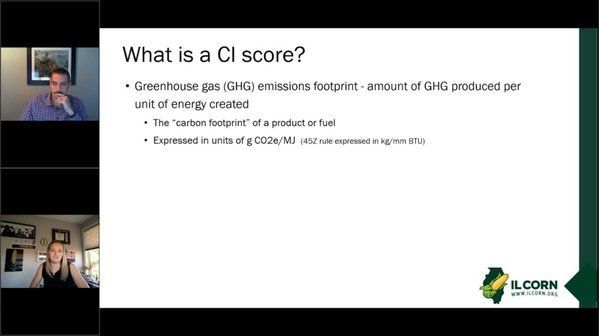
September 18, 2024
There are still more questions than answers. In the face of declining market prices and plummeting profitability equations, Illinois farmers are interested in an opportunity to capture any additional profit from their corn crop. Eventually, low carbon intensity biofuels markets may offer exactly that opportunity, but how is a farmer to consider participating in 2025?

September 18, 2024
Last week during the University of Illinois’s homecoming celebration, the Agriculture Communications Department hosted a “Homecoming Huddle” to discuss how farmers can bridge the gap between rural and urban dwellers using communications tactics. IL Corn’s Director of Communications and Marketing, Lindsay Croke, was joined by Kallee Buchanan, Senior Rural Reporter for the Australian Broadcasting Corporation, and Frank Morris, National Correspondent for NPR.
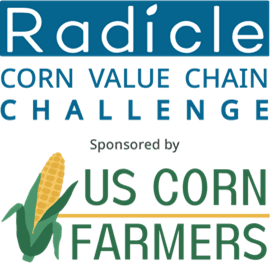
September 17, 2024
RADICLE GROWTH ANNOUNCES FINALISTS FOR THE RADICLE CORN VALUE CHAIN CHALLENGE SPONSORED BY US CORN FARMERS San Diego, September 17, 2024 – Radicle Growth is thrilled to announce the four finalists selected for the highly anticipated Radicle Corn Value Chain Challenge Sponsored by US Corn Farmers, set to take place on October 22, 2024, in San Francisco. After an intensive review process, these standout finalists have emerged from a competitive pool of applicants, each showcasing innovative ideas and exceptional entrepreneurial spirit.
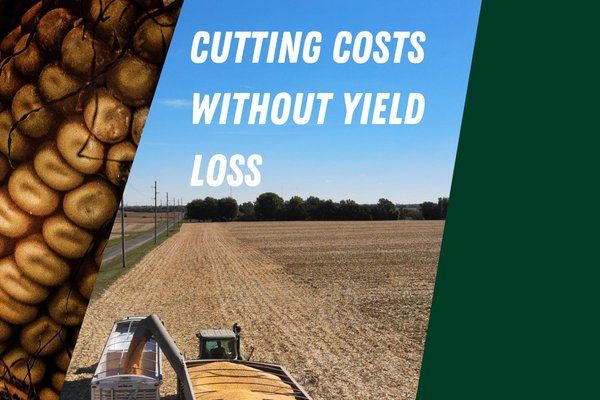
September 13, 2024
In our latest episode, we dive into a compelling conversation with Zach Wells, a dedicated corn grower from southeastern Champaign County. Zach has been actively involved in the Precision Conservation Management (PCM) program , and his story offers valuable insights into how this program can transform farming practices and enhance sustainability. Zach's farming operation spans across several counties, including Vermillion and Champaign. His focus is on corn, beans, and specialty crops like food-grade white corn, which often finds its way to local Frito Lay plants. With a team consisting of himself, a full-time employee, and a couple of part-time helpers, Zach has streamlined his operations to improve efficiency and sustainability. One of the key topics of our discussion was Zach's involvement in PCM, which he has been a part of for about 4 to 5 years. Initially drawn to cover cropping through various programs, Zach's engagement with PCM deepened his understanding and application of conservation practices. The program has been instrumental in guiding him towards more efficient and environmentally friendly methods, such as strip tillage—a practice he is implementing for the first time this year. Zach shared that PCM's support includes financial incentives to mitigate the risks associated with adopting new practices like strip tillage. These incentives help offset potential yield decreases, making it easier for farmers to experiment with and adopt conservation methods. Although PCM does not cover equipment costs, it softens the financial impact of trying new techniques. When it comes to cover crops, Zach employs a combination of cereal rye, oats, and radishes to enhance soil health and sustainability. His method involves aerial seeding of oats and radishes after soybean harvest, which optimizes growth time before frost. PCM’s data analysis plays a crucial role in evaluating the effectiveness of these practices , helping Zach fine-tune his approach based on real-world results. The conversation also touched on the evolution of Zach's tillage practices. Historically, his farm utilized chiseling, but with the insights gained from PCM, he has moved away from this method to reduce costs and improve efficiency. This transition has n ot only saved on fuel and equipment wear but has also maintained or even enhanced yield levels . Zach's experience underscores the value of PCM in providing a comprehensive network of agricultural professionals and data-driven insights. For farmers considering similar changes, Zach’s advice is clear: partnering with organizations like PCM can make the transition smoother and more manageable. As we wrap up this insightful episode, it’s evident that programs like PCM are making a significant impact on modern farming practices. Thanks to Zach Wells for sharing his journey and highlighting the benefits of precision conservation management. Stay tuned for more stories and insights from the world of agriculture on Illinois Corn Connection!
Articles
2026
2025
2024
2023
2022
2021
2020

